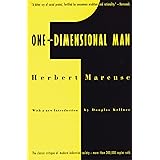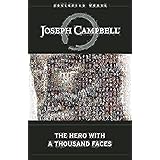
Enjoy fast, free delivery, exclusive deals, and award-winning movies & TV shows with Prime
Try Prime
and start saving today with fast, free delivery
Amazon Prime includes:
Fast, FREE Delivery is available to Prime members. To join, select "Try Amazon Prime and start saving today with Fast, FREE Delivery" below the Add to Cart button.
Amazon Prime members enjoy:- Cardmembers earn 5% Back at Amazon.com with a Prime Credit Card.
- Unlimited Free Two-Day Delivery
- Streaming of thousands of movies and TV shows with limited ads on Prime Video.
- A Kindle book to borrow for free each month - with no due dates
- Listen to over 2 million songs and hundreds of playlists
- Unlimited photo storage with anywhere access
Important: Your credit card will NOT be charged when you start your free trial or if you cancel during the trial period. If you're happy with Amazon Prime, do nothing. At the end of the free trial, your membership will automatically upgrade to a monthly membership.
Buy new:
-7% $27.85$27.85
Ships from: Amazon.com Sold by: Amazon.com
Save with Used - Good
$16.99$16.99
Ships from: Amazon Sold by: TheDyeDeals

Download the free Kindle app and start reading Kindle books instantly on your smartphone, tablet, or computer - no Kindle device required.
Read instantly on your browser with Kindle for Web.
Using your mobile phone camera - scan the code below and download the Kindle app.

OK
Life Against Death: The Psychoanalytical Meaning of History Paperback – June 15, 1985
Purchase options and add-ons
- Print length387 pages
- LanguageEnglish
- PublisherWesleyan University Press
- Publication dateJune 15, 1985
- Dimensions5.51 x 1.17 x 8.47 inches
- ISBN-109780819561442
- ISBN-13978-0819561442
The Amazon Book Review
Book recommendations, author interviews, editors' picks, and more. Read it now.
Frequently bought together

Similar items that may ship from close to you
Editorial Reviews
Review
"One of the most interesting and valuable works of our time. Brown's contribution to moral thought . . . cannot be overestimated. His book is far-ranging, thoroughgoing, extreme, and shocking. It gives the best interpretation of Freud I know."―Lionel Trilling
"Life Against Death cannot fail to shock, if it is taken personally; for it is a book which does not aim at eventual reconciliation with the views of common senseThe highest praise one can give to Brown's book is that, apart from its all-important attempt to penetrate and further the insights of Freud, it is the first major attempt to formulate an eschatology of immanence in the seventy years since Nietzsche."―Susan Sontag
From the Publisher
From the Back Cover
About the Author
NORMAN O. BROWN is Professor Emeritus of Humanities at the University of California at Santa Cruz. He is also the author of Hermes the Thief: The Evolution of a Myth, Hesiod's Theogony, Love's Body and Closing Time. His most recent book, Apocalypse and / or Metamorphosis, completes a trilogy which includes Life Against Death and Love's Body.
Product details
- ASIN : 0819561444
- Publisher : Wesleyan University Press; 2nd edition (June 15, 1985)
- Language : English
- Paperback : 387 pages
- ISBN-10 : 9780819561442
- ISBN-13 : 978-0819561442
- Item Weight : 1.15 pounds
- Dimensions : 5.51 x 1.17 x 8.47 inches
- Best Sellers Rank: #702,080 in Books (See Top 100 in Books)
- #660 in Medical Psychoanalysis
- #1,230 in Modern Western Philosophy
- #2,858 in Medical General Psychology
- Customer Reviews:
About the author

Discover more of the author’s books, see similar authors, read author blogs and more
Customer reviews
Customer Reviews, including Product Star Ratings help customers to learn more about the product and decide whether it is the right product for them.
To calculate the overall star rating and percentage breakdown by star, we don’t use a simple average. Instead, our system considers things like how recent a review is and if the reviewer bought the item on Amazon. It also analyzed reviews to verify trustworthiness.
Learn more how customers reviews work on Amazon-
Top reviews
Top reviews from the United States
There was a problem filtering reviews right now. Please try again later.
This books gives credibility to Freudian Analysis. Nor that it was ever lost, but there are neo-Freudians which of course differ from Freud and there is the reductionism when one looks only through one paradigm, regardless of it's accuracy. This is because there are other modes or of insight that co-inside and yet contradict some of Freud, but that's the beauty of it all, of the psychoanalytical analysis paradigm. And this paradigm is one of the subjective mind, unless you consider Freud to also be biological, then it would take in objectivity, but only in certain levels and degrees. And so this book I think expounds profoundly and is a deep book.
OK, this book speaks of Freud's "pleasure principle," "reality principle," Oedipus complex," "death instinct," castration anxiety," and while this outwardly may sound very limited, the issue comes down to one thing, repression. And whether its sexual, excremental, power or various levels of blocked emotional energies, the theories employed as to why and are very valuable in understanding ourselves and others. And this repression is based on sublimated infantile erotic pleasures beyond into a reality principle and in many cases death instinct. There are many fascinating chapters/essays on these ideas. The fact of the matter is we all came from the womb, all had consciousness of embryonic narcissistic selfhood and sought pleasure and had to deal with reality. We all had a mother (not including abandonment) who became our entire world, our need for pleasure verses pain and desire to possess and it was of a erotic nature. And we all had to deal with separation aspects as major threats to our consciousness.. So much of psychoanalysis rings of truth.
Interesting how the death instinct is the desire to get back to the womb, the incapacity to accept the individuality of life. So it's this form of romanticism, to get back to the child, to play. Unfortunately it negates life in that it fails to accept and represses and causes a life view, either socially, politically, individually & etc. to live a live of undue restraint or hardships with the idea that this life is all temporary, working towards dying in this life to be rewarded with the return back to the womb. And so this is a death against life, a life where the irrational Dionysian play is destroyed and we live in a purely empirical scientific age of logic and rationalistic work, where living is logic in work, as opposed to the idea of play, of childlike ability to live in the present moment, without historicity and guilt and instead the moment where all action is spontaneous play. But instead we repress our play, create history from guilt and rationalize a materialist way of living. The archaic man sublimated his guilt in group activity and had this marvelous trait of each year erasing his historicity in sharing, but even then it was a form of sublimation of guilt. Modern man just builds on his history and lives a capitalistic life based on valueless commodity. Value is measurement, quantity, no longer quality and art. Money has become our excrement. The archaic man transferred or sublimated his sexual and infantile narcissistic energies into a community or shared social system. The modern man sublimates his into money and things he puts value into.
History seen through the eyes of psychoanalysis can be viewed as the sublimation of repression. In this, the infant first exists according the pleasure principle in where is bodily functions take first priority. The reality principle of course combats this and the young child develops the Oedipus complex, wishing to completely own his mother, jealous, wishing to eliminate his father or become the father to himself.
In sublimation, there is the repression of bodily and sexual instinctive desires into what we know of as culture. And the higher the culture the greater the sublimation. What has culminated is our era of objective materialism and empirical science which represses the non-rational nature of wish fulfillment's, desires and instinctual drives. Brown proposes that we reestablish our Dionysian roots, the creative, non repressive self where the use of a money and culture are not the means of escaping the pleasure principle. Instead we play, erase historicity, loose the guilt and accept our entire bodies, not just our minds.
The essay on Jonathan Swift, his exposure of what appears to be prideful human intellectuals and cultural values to come from the anus and excrement (the as***le and sh*t). And he both Norman O. Brown and Jonathan Swift link as all ideas as coming from the human body, ideas used to empower persons, elevate and leave teachings that far outlive the human being's body, another wards a way to be immortal, as an act of repression of the anxiety of death, of separateness. The idea of becoming one's own father - immortality, the Oedipus complex. There is much to this. And yet in a sense, all "matter" comes from excrement, which is what all we are made from biologically, the very biological make up that brings forth our minds and intellectual ideas.
Much, much more to this book, not said here.
The basic theme is this : the human animal, by dint of its deep-rooted guilt, refuses to live for itself and in itself, and continues churning out more and more history ; with which it then proceeds to aggravate further the guilt of the race. The author (unlike, say, Fromm) does not fall into the trap of opposing the 'noble savage' to the neurotic workaholic ; he shows how the same guilt-complex operated in primitive societies and was unleashed in different ways to our modern methods. To demonstrate this, the author calls on a host of scholars from various fields, including archaeology, anthropology, mysticism, economics, mythology, and (of course), psychoanalysis.
It is this emphasis on the continuity of human neurosis across the span of time (and thus, the prevalent 'dead weight of the past on the brains of the living') that gives the book its aura of truly entering into unknown waters. For, if the author's diagnosis is correct, then we have always been neurotic. Thus, the human animal has never really lived. It has substituted a life for itself, a living in eternity, for a living on behalf of 'history'.
I especially enjoyed the latter section of the book, where the author shows the hidden neurotic basis of our work culture, and specifically, our relation to money. This is not simply a standard Marxist criticism along the lines of 'false consciousness' (though the author has obviously read good ol' Karl), but is rather, a deeper analysis of the hidden existential guilt that runs our lives, that acts as a subterranean spiritual force that drives us to atone for our existence. The author brilliantly shows how primitive cultures felt this same guilt and sought to extirpate it through group practices such as shamanism, sacrifice, carefully timed bursts of energy etc. In the modern era, man continues to sacrifice himself, to atone for his guilt at being himself. The author shows that the only difference between age-old conceptions of human guilt, and the modern, unspoken feeling of guilt, simply lies in the fact that the former had a coalescing mechanism (forefathers, gods, etc) that did a decent job of purging the adherents of that culture ; in the latter, there is simply no such coalescing structure, making for a vague amorphous feeling of unease, that perfectly fits the vague and amorphous nature of the word 'progress' itself.
The author's analysis of a connection between the complex of anality and money was also intriguing, and maliciously entertaining. Gold and s*** are the two metaphorical opposites, after all.
The chapter on Swift may not be of much interest to those who do not have some knowledge of literary theory, or those who have not read the man in his own words (a category into which I fall into).
As mentioned, the book truly heads into uncharted territory ; the last section of the book offers up the author's prescription for undoing the almost-impossibly deep-rooted repression that afflicts the entire human race ; a case of fashioning the shiny noose that with which we hang ourselves. The author steps beyond the Marxist prescription of demolishing the base (with its' assumption that the superstructure will follow), as well as the traditional Freudian understanding of neurosis as an inescapable part of being human. He offers a deeply existential and spiritual approach to undoing repression, by advocating a new culture (in the original sense of the term), that will allow the human animal to live in eternity, rather than foolishly creating more and more history by the avenue of its own self-denial.
In conclusion, this is a dense examination that was undoubtedly written for an educated audience. A decent knowledge of Freud is de rigeur, if only to see where the author is coming from and where he takes that thinker. Students of the Frankfurt School, as well as the broader field of critical theory, should enjoy this hefty tome, as well as anyone committed to a rethinking of what it means to be a human being.
Brown, even as he returns the importance of the death instinct to its proper place in the Freudian lexicon, he reformulates it so that it is not neurotics who should change to fit their own function in culture, but it is culture itself that needs to change. Neurosis in an individual is a symptom of culture and it is neurosis itself that is cultural. hence, one needs not to change the analysand so he comes to grip with the reality principle inasmuch as one needs to change the reality principle to come to grips with the repressed pleasure principle in man.











